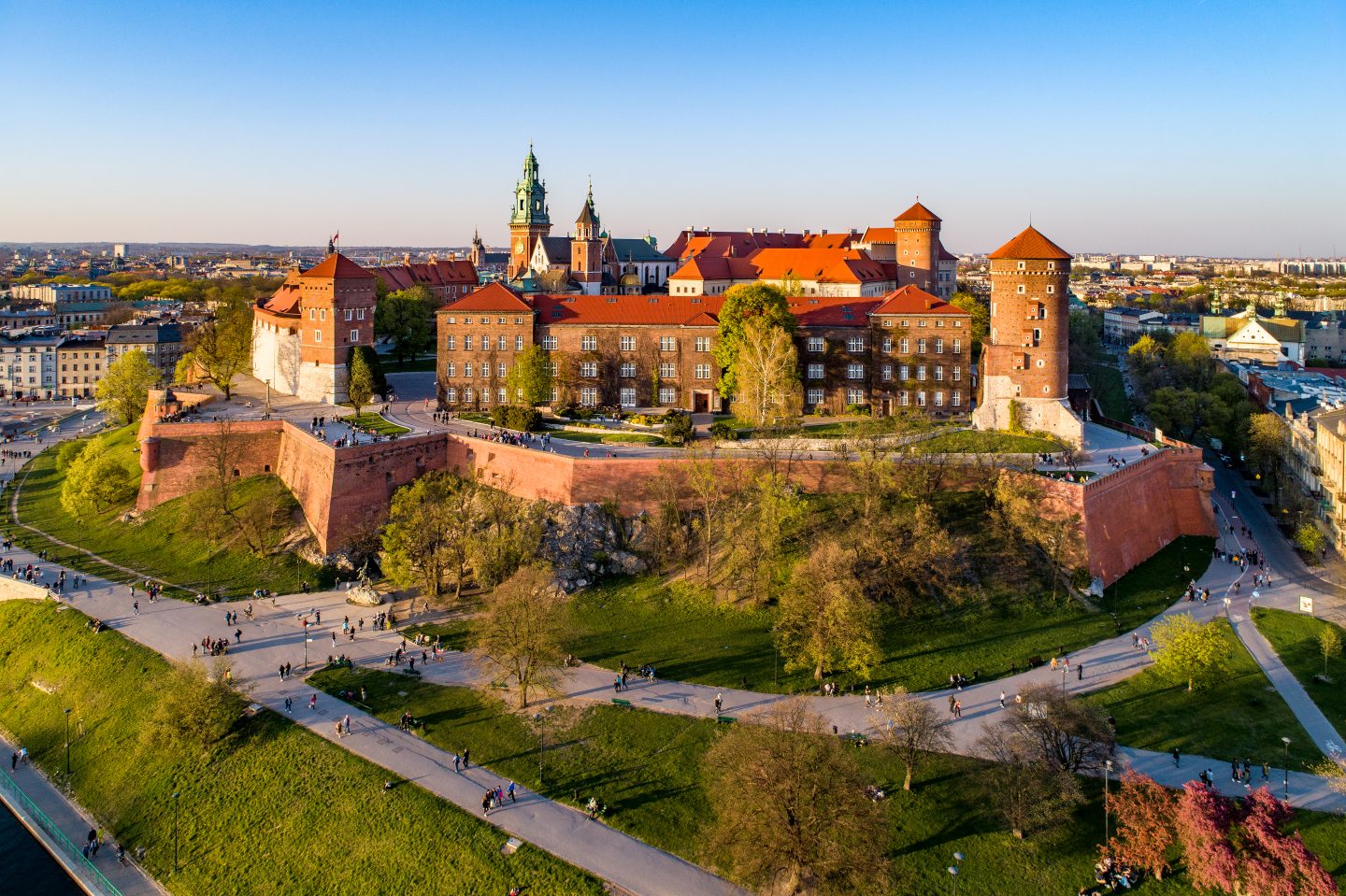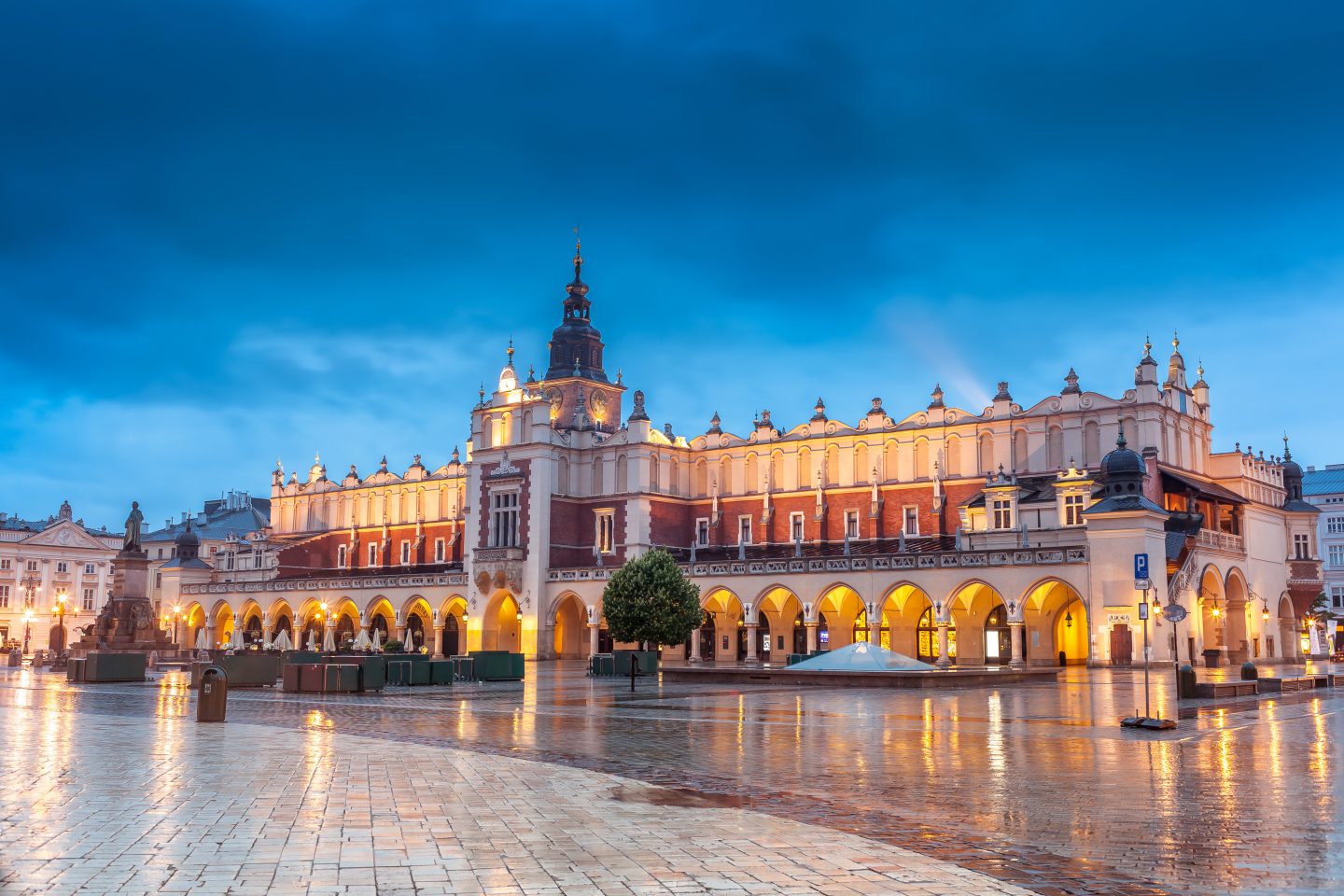Call for Panels & Papers
OUT OF EUROPE: Studying Religion(s) in Interconnected Worlds
The XXIII Quinquennial World Congress of the International Association for the History of Religions (IAHR), hosted by Jagiellonian University and the Polish Society for the Study of Religions, will take place in Kraków, Poland, August 24–30, 2025.
Read the Call for Panels & Papers in Spanish or in French.

The concept of “religion” and the discipline of its study were both conceived in Europe and exported out of Europe. The process of exploring “otherness” contributed to the formation of European identities.
How did this complex process influence the way scholars understood the concept of “religion” and how they thought religions should be studied in Europe and around the world? A long tradition of thinkers and scholars have reflected on “the Other.” A critical reading of their work has allowed us to rethink orientalism, colonization, and decolonization from multiple distinct perspectives. This is leading to the globalization of the academic study of religion(s), which is still evolving in various ways. Simultaneously, many scholars evinced a sincere interest in transgressing geographical borders, cultural discourses, and social worlds. This is not just to posit a significant Other but to enlarge the knowledge of the human being past and present—of differences and commonalities in human ways of living and thinking. The goal of the Congress is to explore the interplay between these approaches in the interconnected worlds of the past and present.While welcoming contributions on any topic in the academic study of religion, we encourage papers that explore this theme under the following headings.
1. Mapping
the unity and diversity of the discipline:
past, present, and future
Study of religion(s) as an academic discipline was created within the framework of secular European universities. The effort to understand the “Other” has resulted in the study of religion(s) as a human phenomenon, both in Europe and out of Europe. In this section, we would like to explore the variety of theoretical and methodological forms the study of religion(s) has taken. We shall explore the groundbreaking achievements of European scholars working on fundamental disciplinary concepts and methods. We shall also consider the same themes as they are reflected upon in different parts of the world and interrogate the complex connections between the processes of disciplinary identity formation and other historical, cultural, social, political, and institutional developments. What does it mean to decolonize the study of religion(s)? Could such a feat be achieved?
2. Understanding
the concept of “religion”: uses and contexts
According to many scholars, the central categories of the study of religion (including “religion” and “world religions”) originated in modern post-Reformation West in response to specific historical and political processes. Has this indeed been the case? In this section, we would like to discuss the key concepts of our discipline, their political, cultural, social, and historical entanglements, as well as alternative, indigenous ways of conceptualizing formations customarily referred to by scholars as “religion”.
3. Connecting
the particular and the universal
The dynamic growth of area studies has influenced study of religion(s). How do we imagine the relation between our context-specific data and more generalized approaches? How do specific, empirical case studies contribute to more generalized reflections about “religion”? How do we study religious life in practice? The development and differentiation of the cognitive science of religion raises similar issues related to culture and cognition. How do panhuman cognitive processes interact with implicit and explicit cultural learning to produce different religious and nonreligious worldviews and ways of life?
4. Crossing
the boundaries: approaches and methodologies
The rich variety of methodological perspectives in the study of religion(s) may lead to the conclusion that there is no one method specific to our discipline. In this section, we would like to critically consider both classical and new methods available to scholars of religion. For example, how do the aims and methods of the study of religion(s) differ from those of other disciplines engaging religion as their subject matter? What does it actually mean to work trans- or inter-disciplinarily? How do we embrace and/or challenge the interdisciplinary ethos of religious studies? In addition, by adopting the “out of Europe” focus we want to open a space for examining approaches and methodologies that originated outside Western academia. Can a ‘dialogue’ between academic study of religion(s) and emic categories as well as indigenous methodologies contribute to our scholarship? Or, does such a ‘dialogue’ blur the contours of academic study of religion(s)?
5. Engaging
scholarship and knowledge exchange
Study of religion(s) is increasingly related to identity politics, social activism, (im)balance of powers and authority, gender and more recently environmental and climate issues. In this section, we want to discuss these, and other, approaches, often connected with engaged, activist scholarship. In what ways can scholars of religion(s) contribute to outreach and educational activity and to solving social and political problems? Or should scholars of religion(s) seek to balance or counter the ‘identity turn’? Or eschew engagement altogether?
6. Relating
religion with culture and society
Study of religion(s) has moved away from the conception of religion as a sui generis phenomenon. In light of this important shift, scholars in our discipline are called to reflect not only on new ways to conceptualize religion, spirituality, and secularity, but also to relate them to other domains of social and cultural life. In this section we want to discuss how “religious” or “spiritual” people, groups, institutions, discourses, and objects interact with sociocultural processes such as migration and urbanization, life realities such as marginalization and assimilation, and functional spheres such as politics, art, and the economy.
We are looking forward
to seeing you
in Kraków!
